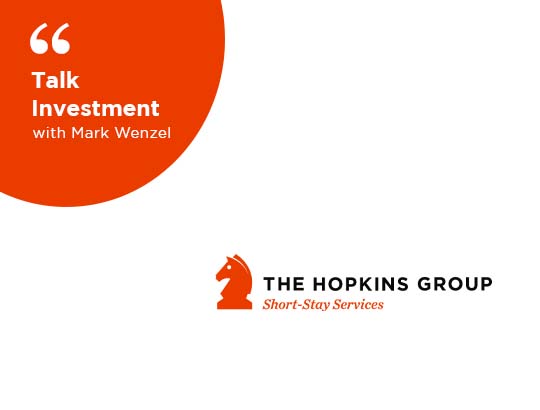A self managed superannuation fund (SMSF) is a trust structure used to manage retirement savings on behalf of its members. All SMSFs must abide by trust and superannuation laws, which include compliance with the following:
- General trust law
- Superannuation taxation legislation
- The SMSF Trust Deed or governing rules
- Corporation legislation, if there is a corporate trustee in place.
The primary obligation of a trustee is to act in accordance with the Trust Deed. A Trust Deed sets out how the trustee should operate and manage the Trust.
Key provisions – what should a Trust Deed include?
To ensure the smooth running of a SMSF, the Trust Deed should generally include:
- A clear establishment date
- A clear definition of the ‘relevant law’ or ‘superannuation law’
- A compliance clause stipulating that the Trust Deed is to be read in conjunction with the superannuation laws, that the Trust Deed is deemed to include any governing rules in order for the SMSF to be a complying SMSF and that in the case of any inconsistencies between the governing rules and the law, the relevant law is to take precedence
- Details of how someone can become a member of the SMSF
- Details on how proceedings are to be conducted (e.g. unanimous vote, majority vote etc.).
- Details of the investment power of the trustee should include:
- Express power to allow the trustee to borrow
- Rules for the acceptance of contributions, including in-specie contributions
- Rules for the payment of benefits, including the nomination of reversionary beneficiaries
- Rules in relation to binding death benefit nominations
- Details of who may become trustee and under what circumstances
- Details of how a SMSF may be wound up and in what circumstances
- Details about how the Trust Deed can be amended and any specific requirements of that amendment
- These are generally standard clauses in most SMSF Trust Deeds; however some older Trust Deeds may not include these so it is especially important to check your Trust Deed
- When do you need to consult your Trust Deed?
- Key stages of a SMSF that will require the Trust Deed to be consulted (and possibly amended) include:
- Any structural changes to a SMSF, including adding a member, changing trustee or winding up the SMSF
- Borrowing to purchase an investment
- When a member is considering commencing a pension
- When benefits are to be paid out of the SMSF
- When considering a members estate and succession plan
Structural changes
A SMSF Trust Deed essentially provides the operational framework for the SMSF. When considering making any structural changes, it is important to refer to the Trust Deed to ensure the desired changes are permitted. For example, a Trust Deed may have prescriptive rules in relation to the appointment of additional members. It may require that a potential member complete an application in a specific form, sign a product disclosure statement or provide a written statement that they agree to be bound by the rules of the SMSF. If the new members do not comply with the Trust Deed requirements, then their membership may be void.
There are generally specific requirements for winding up a SMSF. An SMSF Trust Deed may require written notification be given to members or that members must unanimously agree to wind up the SMSF. It may also specify that a SMSF must automatically be wound up in certain circumstances. Another important area is Trust Deed amendments. Some Trust Deeds are very specific in relation to when and how they can be amended. Some Trust Deeds may require an employer sponsor to approve the amendment. Failure to obtain this approval may result in any amendments being void.
Borrowing
In September 2007, the superannuation legislation was amended to specifically allow SMSFs to borrow money to acquire an asset. If trustees are considering a borrowing arrangement in their SMSF, they should review the Trust Deed to ensure this is permitted, particularly if the Trust Deed is older than 2007. Specific lenders may also require additional powers and/or provisions to meet their lending requirements.
Pension commencement
The rules in relation to pensions have changed substantially from 1 July 2007. It is important that trustees check the SMSFs Trust Deed to ensure it allows for the relevant pension to be paid (e.g. Some older Trust Deeds do not provide for the payment of Account Based Pensions which only came into effect from 1 July 2007). It is also important to check the deed has provisions for the commutation of pensions and the ability to treat pension payments as lump sums should the need arise.
Benefit payment
Where benefits are to be paid out of a SMSF, it is important the Trust Deed is checked to ensure the benefit payment is permitted. It is also important to check the method of payment is permitted, such as via an in-specie transfer of an asset. There may also be specific requirements that a member must have ceased employment or attained a particular age prior to a benefit being able to be paid.
Estate planning
One of the likely scenarios for litigation involving SMSFs is the payment of benefits on death of a member. There have been a number of significant court cases surrounding the payment of death benefits. It is imperative that a Trust Deed is checked prior to a member making a Binding Death Benefit Nomination (BDBN). The Trust Deed should have clear rules as to when a BDBN is binding on the trustee, whether it needs to be in a particular form, whether additional information must be provided to the member making the BDBN and whether the BDBN is to expire after 3 years (which is not a requirement for an SMSF – but industry practice is often to include an expiry clause to ensure members regularly review their situation).
Legislative changes over the past few years
Regular review of a Trust Deed will ensure the SMSF is prepared for any situation, such as paying benefits and entering a limited recourse borrowing arrangement. In practice, it is recommended that a SMSFs Trust Deed be reviewed at least every 3 to 5 years to ensure it remains relevant.
Things to look for when reviewing your Trust Deed:
- Ensure you are familiar with the powers of the trustee
- Ensure you check that any death benefit nominations are exactly in accordance with the Trust Deed
- Prior to paying a benefit from a SMSF, or commencing a pension, check the Trust Deed to ensure the type of payment can be made
- Ensure you are familiar with the succession rules of your SMSF including who becomes trustee when a member dies or becomes incapacitated
Compliance
Ensuring you are meeting all government regulations with regard to your SMSF is essential, not only to maximise your retirement fund but also to ensure you avoid any potential tax implications or penalties.
For more information on Trust Deeds, or for any SMSF related enquiry, please feel free to call our office on 1300 726 082 and ask to speak with one of our accountants who will be able to assist.


